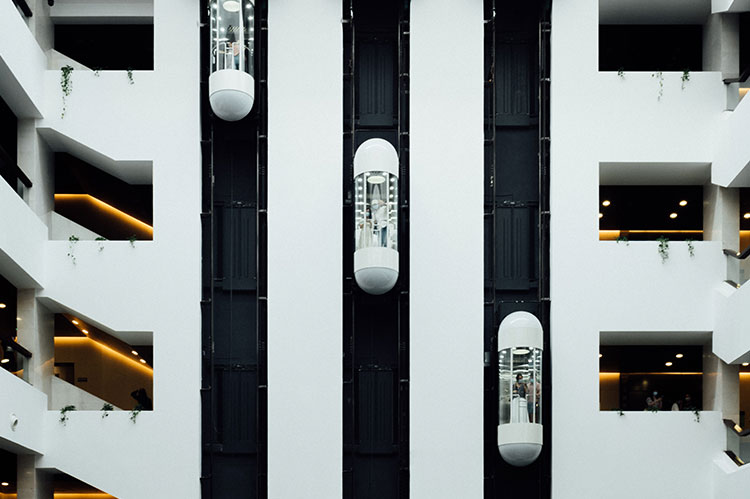
Comparing Commercial Elevators and Residential Elevators
The difference between commercial elevators vs. residential elevators may seem straightforward, but a few specificities define each type of elevator.
As the name implies, residential elevators are used in single-family homes. Any elevator that services more than one residence, or an elevator installed in any building other than a residential building, must be a commercial elevator. While you can install some types of commercial elevators in single-family residences, they are less common than residential elevators for personal in-home use. While there is more flexibility in residential elevators, only commercial elevators are permitted to be installed in commercial spaces.
Residential elevators are not subject to the same standards and requirements as commercial elevators, such as specific elevator codes specifying minimum weight and size requirements for commercial elevators based on the type of elevator and the number of floors the elevator serves.
In addition, many of the same features are available in both commercial and residential elevators, just with different requirements for each application. For example, both residential and commercial elevators can be either hydraulic or traction elevators, and both residential and commercial elevators can have a machine room or be machine room-less elevators.
Residential Elevators
Residential elevators are typically less expensive to install and maintain than commercial elevators. Installation and construction of residential elevators can be cheaper due to most residential elevators utilizing timber frame construction.
Residential elevators don’t have the same weight and size requirements as commercial elevators, and they are typically smaller than commercial elevators. Residential elevators generally have a max weight capacity of 500 or 750 pounds.
While residential elevators are not always required to meet ADA standards which require commercial elevators to be large enough to fit a wheelchair, many residential elevators can still accommodate wheelchairs and other mobility equipment.
Commercial Elevators
Any elevator in a building that encompasses more than just a single-family home is required to be a commercial elevator. Some examples of building types that necessitate commercial elevators are apartment buildings, office buildings, retail spaces, and industrial buildings.
Besides needing to meet minimum size and weight requirements, commercial elevators are generally larger than residential elevators since they are needed to serve more people at any given time. However, Limited Use Limited Application (LULA) elevators are a type of less expensive commercial elevator that is ideal for use in smaller commercial elevator applications, such as condos and smaller office buildings.
Commercial elevators are more expensive to install and maintain than residential elevators. Commercial elevators most commonly use steel frame construction, making them more reliable and longer-lasting, but with a more expensive installation process. Champion Elevator can help you maintain, modernize, and repair your commercial elevator equipment so your business stays up and running with minimal disruption to your operations.
Let Champion Elevator Assist You with Commercial and Residential Elevators
For more information on the differences between residential and commercial elevators, or for assistance on which elevator type is most suitable for your needs, contact Champion Elevator today!